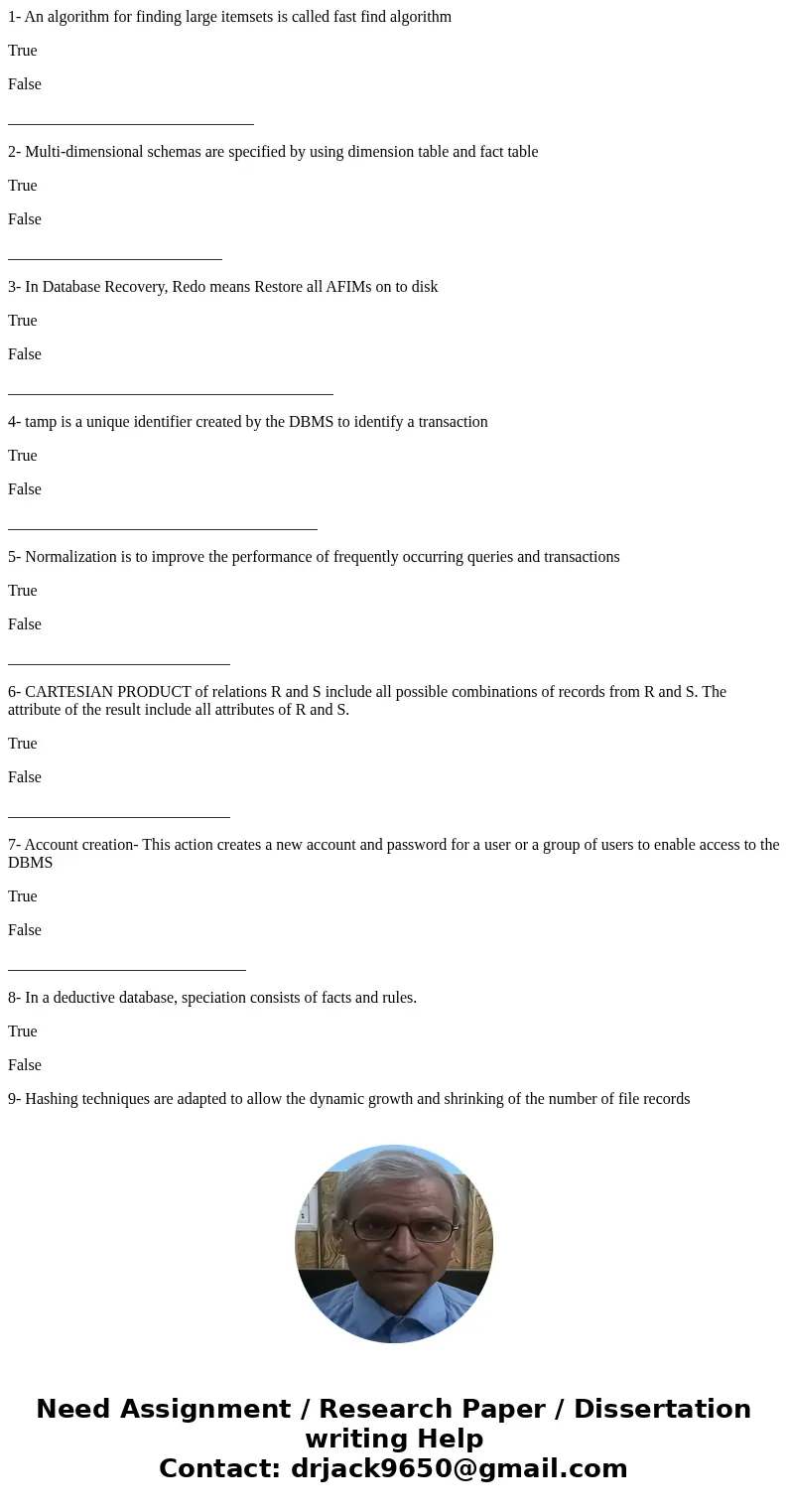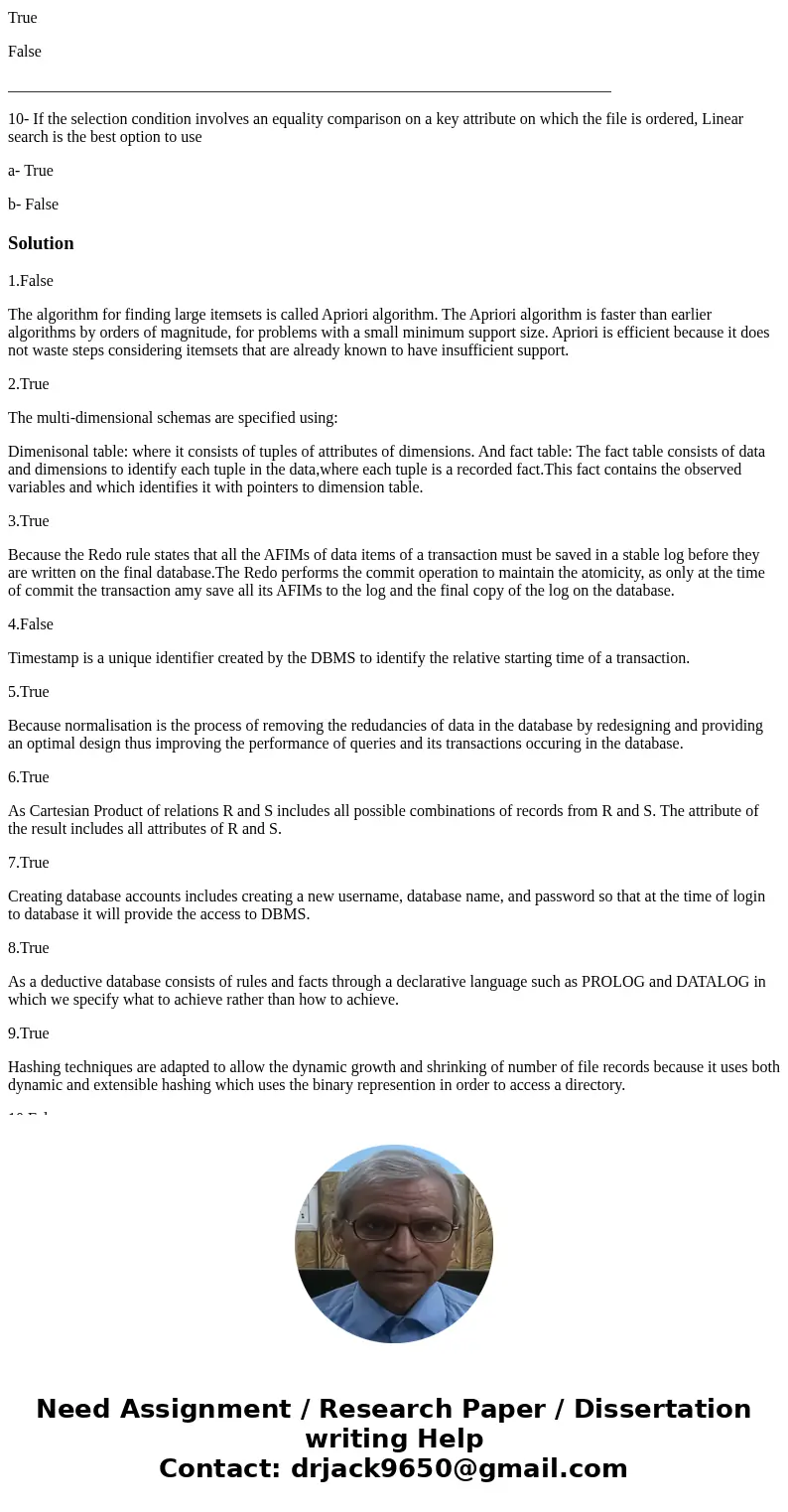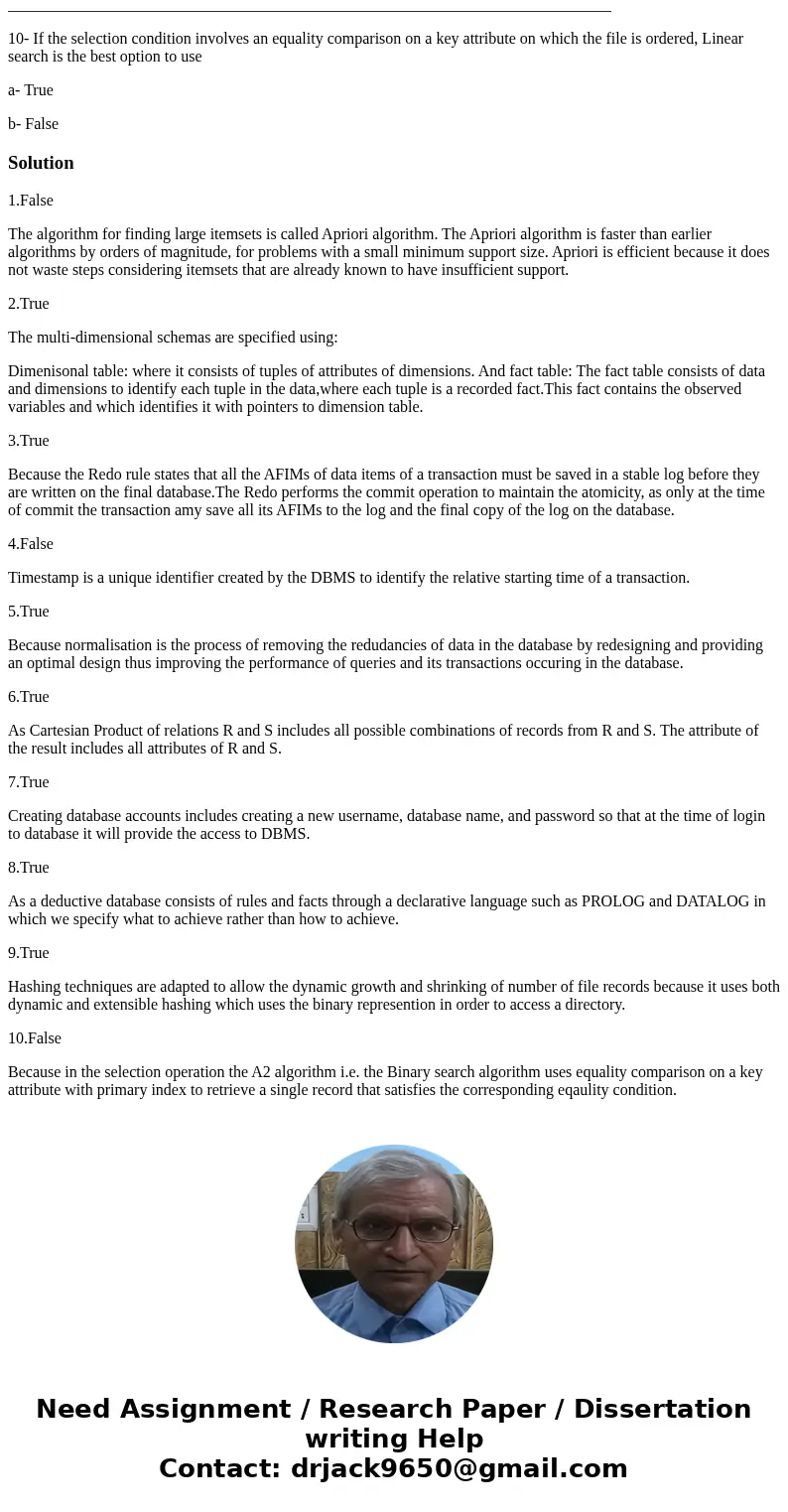1 An algorithm for finding large itemsets is called fast fin
1- An algorithm for finding large itemsets is called fast find algorithm
True
False
_______________________________
2- Multi-dimensional schemas are specified by using dimension table and fact table
True
False
___________________________
3- In Database Recovery, Redo means Restore all AFIMs on to disk
True
False
_________________________________________
4- tamp is a unique identifier created by the DBMS to identify a transaction
True
False
_______________________________________
5- Normalization is to improve the performance of frequently occurring queries and transactions
True
False
____________________________
6- CARTESIAN PRODUCT of relations R and S include all possible combinations of records from R and S. The attribute of the result include all attributes of R and S.
True
False
____________________________
7- Account creation- This action creates a new account and password for a user or a group of users to enable access to the DBMS
True
False
______________________________
8- In a deductive database, speciation consists of facts and rules.
True
False
9- Hashing techniques are adapted to allow the dynamic growth and shrinking of the number of file records
True
False
____________________________________________________________________________
10- If the selection condition involves an equality comparison on a key attribute on which the file is ordered, Linear search is the best option to use
a- True
b- False
Solution
1.False
The algorithm for finding large itemsets is called Apriori algorithm. The Apriori algorithm is faster than earlier algorithms by orders of magnitude, for problems with a small minimum support size. Apriori is efficient because it does not waste steps considering itemsets that are already known to have insufficient support.
2.True
The multi-dimensional schemas are specified using:
Dimenisonal table: where it consists of tuples of attributes of dimensions. And fact table: The fact table consists of data and dimensions to identify each tuple in the data,where each tuple is a recorded fact.This fact contains the observed variables and which identifies it with pointers to dimension table.
3.True
Because the Redo rule states that all the AFIMs of data items of a transaction must be saved in a stable log before they are written on the final database.The Redo performs the commit operation to maintain the atomicity, as only at the time of commit the transaction amy save all its AFIMs to the log and the final copy of the log on the database.
4.False
Timestamp is a unique identifier created by the DBMS to identify the relative starting time of a transaction.
5.True
Because normalisation is the process of removing the redudancies of data in the database by redesigning and providing an optimal design thus improving the performance of queries and its transactions occuring in the database.
6.True
As Cartesian Product of relations R and S includes all possible combinations of records from R and S. The attribute of the result includes all attributes of R and S.
7.True
Creating database accounts includes creating a new username, database name, and password so that at the time of login to database it will provide the access to DBMS.
8.True
As a deductive database consists of rules and facts through a declarative language such as PROLOG and DATALOG in which we specify what to achieve rather than how to achieve.
9.True
Hashing techniques are adapted to allow the dynamic growth and shrinking of number of file records because it uses both dynamic and extensible hashing which uses the binary represention in order to access a directory.
10.False
Because in the selection operation the A2 algorithm i.e. the Binary search algorithm uses equality comparison on a key attribute with primary index to retrieve a single record that satisfies the corresponding eqaulity condition.



 Homework Sourse
Homework Sourse